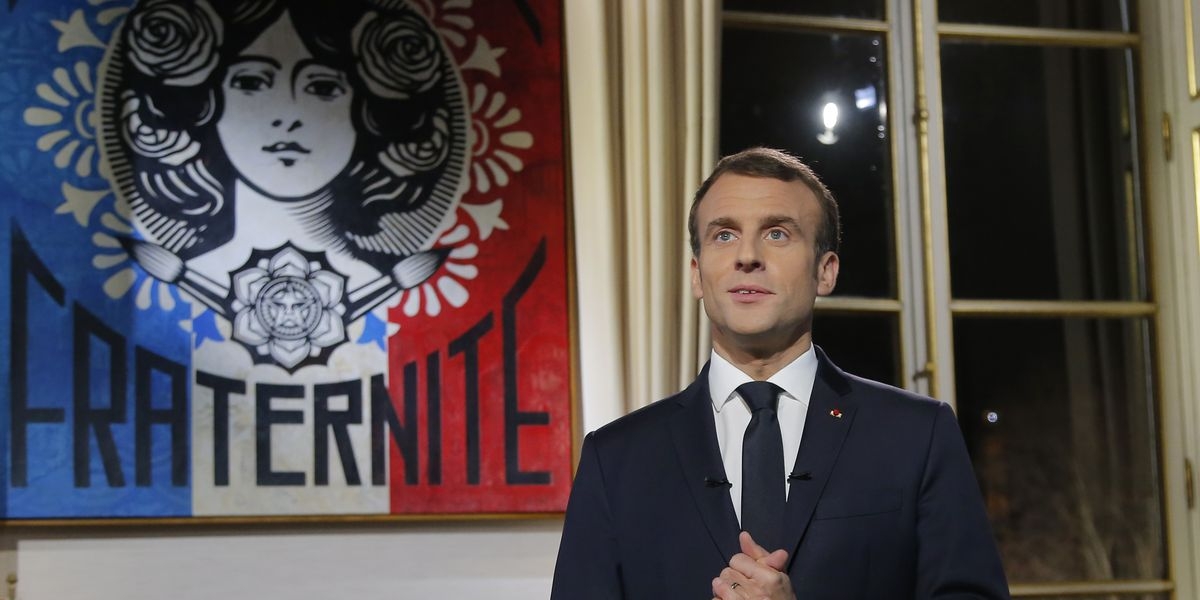Macron attacks extremists in New Year speech

French President Emmanuel Macron used his traditional New Year's Eve speech to sound a warning to extreme elements among anti-government protesters.
He promised to keep order "without complacency" and decried self-appointed "spokespeople for a hateful mob".
At least six people have died and some 1,400 have been injured since protests over fuel tax rises erupted last month.
Earlier, in her annual address, Angela Merkel said Germany would play a greater international role in 2019.
The German chancellor said that old certainties about international co-operation had "come under pressure", alluding to strained US-German relations, and Germany must "take on more responsibility".
What did Macron say exactly?
The French President suggested that the anger at the root of the "yellow vest" unrest, so named because of the high-visibility vests worn by protesters, showed France was "not resigned" and wanted to "build a better future".
However, without naming them, he went on to condemn extreme elements who sought to speak "in the name of the people".
"In fact they are only the spokespeople of a hate-filled mob and they target elected politicians, the security forces, journalists, Jews, foreigners and homosexuals," President Macron said. "It is quite simply the negation of France."
Warning French citizens to be wary of fake news, he asked them "not to forget that you can build nothing on lies".
The government, he said, should be allowed to continue its work to carry out reforms.
"In recent years, we've engaged in a blatant denial of reality," he said. "We can't work less, earn more, cut taxes and increase spending."
However, he also accepted that more work must be done to make some citizens feel more valued.
As the French leader's speech was broadcast, reports came in of new protests. "Yellow Vests" could be seen gathering on the Champs-Élysées in Paris and setting up camp by the A28 motorway, south of Le Mans, but there were no immediate reports of trouble.
How did Merkel see Germany's role?
Over the past year, Chancellor Merkel has been a leading defender of multilateralism, in contrast to Mr Trump's America First foreign policy.
The German leader warned that global problems like climate change, migration and terrorism could not be solved alone.
"We will only master the challenges of our times if we stick together and collaborate with others across borders," she said.
By taking up a temporary seat on the UN Security Council in 2019 and 2020, Germany would push for "global solutions", Ms Merkel said.
Yet while appealing for solidarity and co-operation, she also accepted Germany had a deep political divide and conceded that her government had let down citizens
This year, Mrs Merkel averted the near collapse of her coalition government over a migration row, rising out of Germany's acceptance of more than one million migrants and refugees in 2015.
The chancellor, who will step down in 2021, pledged to increase the country's spending on humanitarian and development aid, and defence.
